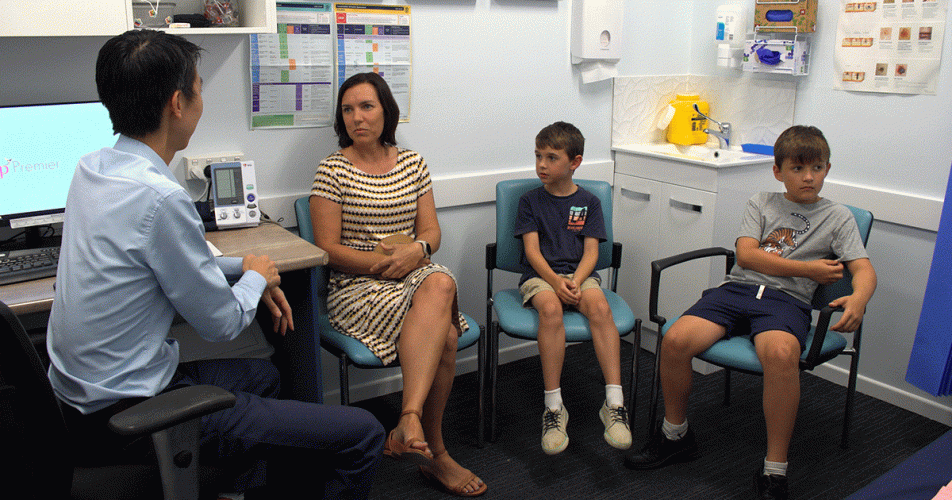Vaccination decision gambles with kids' health
Childhood immunisation appointments are more than just a needle - they are an important opportunity to check on a child's growth and development and should be conducted by a trained GP.

New regulations allowing pharmacists to vaccinate all children two years and older are a step too far and could lead to missed diagnoses of developmental delays, post-natal depression in parents and the risk of family violence.
“A childhood immunisation appointment is not just a vaccine appointment – it’s an opportunity to track that a child is growing, assess for any delays in hearing or speech, and check in with the parents,” AMA Queensland President Dr Maria Boulton said.
“GPs are trained to identify and diagnose child development delays. The earlier these diagnoses are made, the better the outcome for the child.
“If these delays are missed, the child’s social interaction and school performance can be affected and the child may need treatment for longer.
“For these reasons, no other jurisdiction in Australia allows pharmacists to vaccinate children under five years. The Queensland government is gambling with our children’s health and we cannot support such an unjustified expansion.”
AMA Queensland also opposes the extension of travel vaccinations to pharmacies.
“Travel vaccinations are not part of the National Immunisation Program (NIP) and in most cases are not needed urgently,” Dr Boulton said.
“Again, a travel health check-up is about more than vaccination. GPs discuss travel advice with the patient, like how to avoid gastroenteritis, the risk of Zika, check their risk of blood clots and provide them with advice and scripts for medications they may need, including anti-malarials.
“Patients may have medical conditions that make some travel vaccines contraindicated. Pharmacists do not have the training and records to adequately assess these patients, particularly patients who do not use My Health Record.”
AMA Queensland supports changes to allow pharmacists to deliver vaccinations in general practices and aged care facilities.
“This is a much-needed reform that will allow greater vaccine access for vulnerable patients. This is particularly important with COVID on the rise again among our older population,” Dr Boulton said.
“AMA Queensland, as Chair of the Queensland GP Alliance, has been calling for this jointly with the Pharmaceutical Society of Australia (PSA) since April this year.
“General practice and aged care are among the safest settings for pharmacists to use their full training in vaccine administration as it occurs in close collaboration with other health professionals including doctors and nurses.
“However, we oppose allowing pharmacists to administer vaccines that are not part of the NIP without a prescription from a doctor.
“This amounts to another thwarting of proper institutional processes designed to protect patients. By effectively down-scheduling S4 prescription-only medications to S3 over-the-counter, the Queensland government is making a mockery of agencies like the Therapeutic Goods Administration (TGA) whose very job is to protect patient health.
“This is completely unacceptable in siloed settings like community pharmacy where there is no collaboration with medical practitioners.”
Background
- Pharmacists working in general practice were allowed to administer influenza and COVID-19 vaccines to limited populations under an emergency order. However, this order expired on 29 April 2023.
- The Queensland GP Alliance and the Pharmaceutical Society of Australia wrote to then-Health Minister Yvette D’Ath in April urging for the arrangement to be made permanent.
- Queensland Health then called for submissions on proposed changes to the Extended Practice Authority for pharmacists.
- These changes proposed increasing the vaccine types and age groups for which pharmacists can administer vaccines, broadening the locations in which pharmacists can administer vaccines, and allowing pharmacists to administer all scheduled medicines including S4 and S8 prescription-only medications.
- The final regulation was tabled on 27 October 2023 and can be found here.



